Healthy teeth are much more than just a cosmetic concern. A smile is often the first thing people notice about you, but beyond that, oral health is deeply interconnected with overall wellness. This is because our mouth is a gateway to the rest of our body.
Poor dental hygiene can lead to more than just tooth decay and dental caries; it can affect your entire system, particularly your heart and gut health. With a well-rounded, natural dental care routine, you can promote the remineralization process of your teeth and maintain a healthier mouth and body.

The Science Behind Remineralization
Remineralization is a natural tooth repair process that occurs when vital minerals, such as calcium, bond to the teeth to fill in the weakened areas of enamel [1]. The process helps replace lost minerals in your teeth to keep them strong and prevent tooth decay [2].
The process of tooth remineralization is a naturally occurring event that happens daily in our mouths. It’s the counter process to tooth demineralization, the stage where minerals are leached from the tooth surface. This ebb and flow, the loss and gain of mineral ions, is influenced by various factors such as our diet, oral hygiene practices, and saliva production.
This process is regulated by the saliva in our mouth. Saliva contains calcium, phosphate, and other mineral ions that help repair tooth enamel by replacing the lost minerals. This is the process called remineralization. And the best part? Our body orchestrates this intricate process without us even being aware of it.
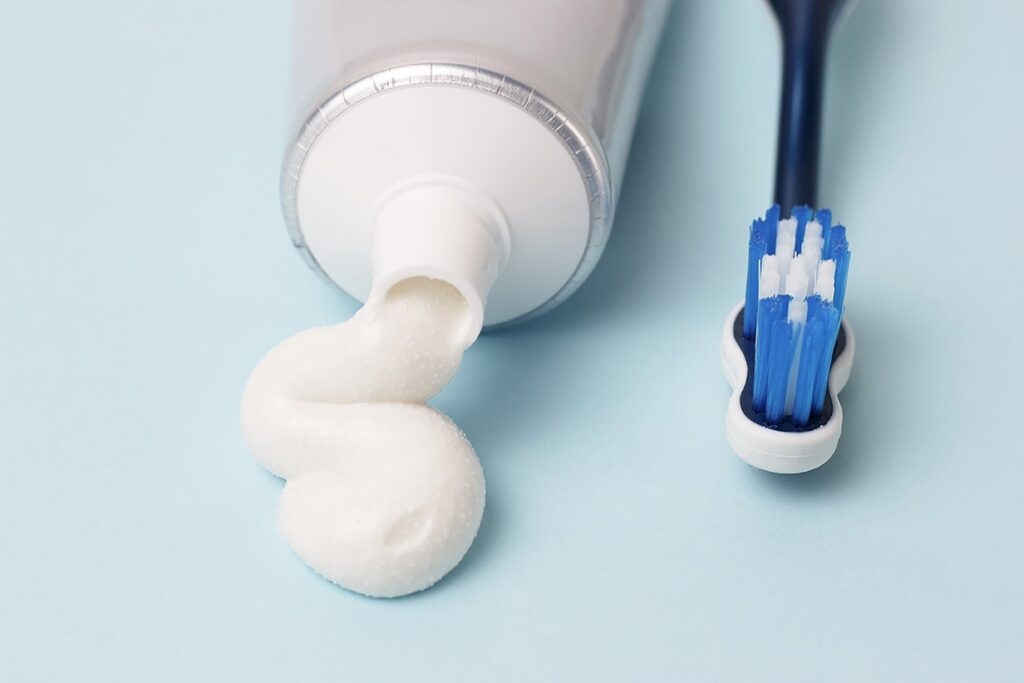
Dental Hard Tissue Remineralization: Science and Strategies
Our teeth are composed of hard tissues, the outermost being enamel, which is prone to demineralization due to acid attacks. However, our bodies can naturally reverse this process through dental hard tissue remineralization. Understanding this process can help us incorporate effective strategies into our oral care routines.
Fluoride: Friend or Foe?
Fluoride ions have been touted as a solution to tooth decay for many years. Fluoride treatments and fluoride toothpastes have been recommended by the American Dental Association for their role in preventing cavities. They work by strengthening the tooth enamel and making it more resistant to acid attack.
However, there is growing evidence that excessive exposure to fluoride can lead to weakened enamel and other health issues. This has led to an increasing number of people, including me, seeking fluoride-free alternatives.
The Role of Diet in Tooth Remineralization
The foods and drinks we consume play a significant role in tooth remineralization. Acidic foods and beverages, like fruit juices, can cause mineral loss and weaken the enamel surface. Sugar consumption is another culprit, as it encourages bacterial growth and acid production in the mouth.
On the other hand, foods rich in calcium, phosphate, and vitamin D can promote remineralization. These nutrients contribute to stronger teeth and healthier gums. Certain foods like cheese, leafy greens, and fish are good sources of these minerals. Additionally, consuming healthy fats and going grain-free can also be beneficial for oral health.

The Importance of Oral Hygiene in Preventing Tooth Decay
Dental caries, or tooth decay, is the result of an ongoing war between demineralization and remineralization. When the balance is tipped towards demineralization, caries lesions can form. Preventing tooth decay involves tipping the scales back in favor of remineralization.
Good oral hygiene is crucial in this battle. Brushing with a remineralizing toothpaste, flossing to remove plaque from between the teeth, and regular check-ups with a dental hygienist can all contribute to a healthier mouth.
The Oral-Systemic Link
A mounting body of research points towards a significant link between oral health and systemic health. The British Medical Journal and other reputable publications have featured studies indicating a strong connection between poor oral health and systemic diseases like heart disease, diabetes, and even Alzheimer’s. This underlines the importance of maintaining dental health, not just for the sake of your teeth, but for your overall well-being.

Understanding Tooth Enamel and Demineralization
Enamel is the hard, protective outer layer of your teeth. It’s primarily composed of mineral ions, specifically calcium and phosphate, which make it the hardest substance in your body. Yet, despite its hardness, it’s vulnerable to a process called demineralization.
Tooth demineralization is the process where your enamel surface loses mineral ions due to the acid attack of oral bacteria. This bacteria feeds on fermentable sugars from the food and drinks we consume, particularly sugary and starchy foods, producing acids. Over time, the acids can erode enamel, leading to weakened enamel, tooth decay, and dental sensitivity.
When the demineralization process outweighs the remineralization process (the natural restoration of mineral ions to the enamel surface), it results in dental caries or cavities. Fluoride toothpaste and fluoride treatments have long been recommended by the American Dental Association for preventing demineralization and promoting remineralization. However, a growing body of research and personal experiences have started to challenge the conventional approach.
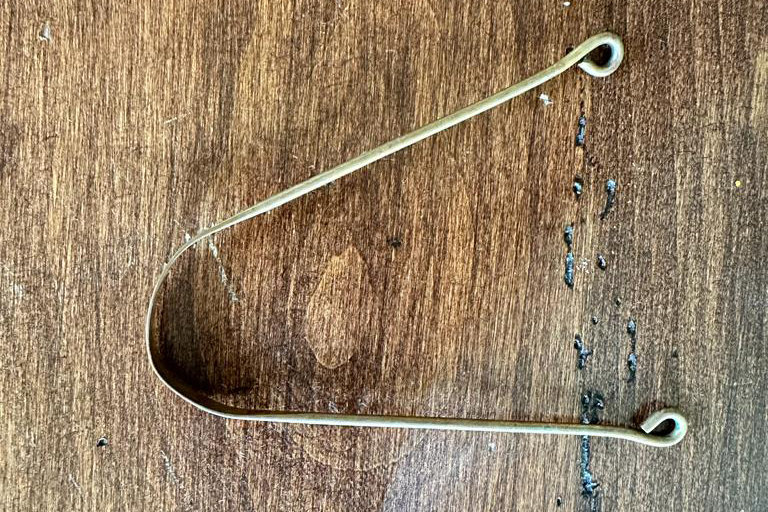
Choosing the Right Oral Care Products
With the myriad of products available in the market, choosing the right ones for your oral care routine can be overwhelming. It’s essential to opt for products that support the natural remineralization process, do not contain harmful substances like fluoride, and ideally, are made from natural ingredients.
Remineralizing toothpaste, mouthwash without harsh chemicals, and even something as simple as a tongue scraper can make a big difference in your oral health.
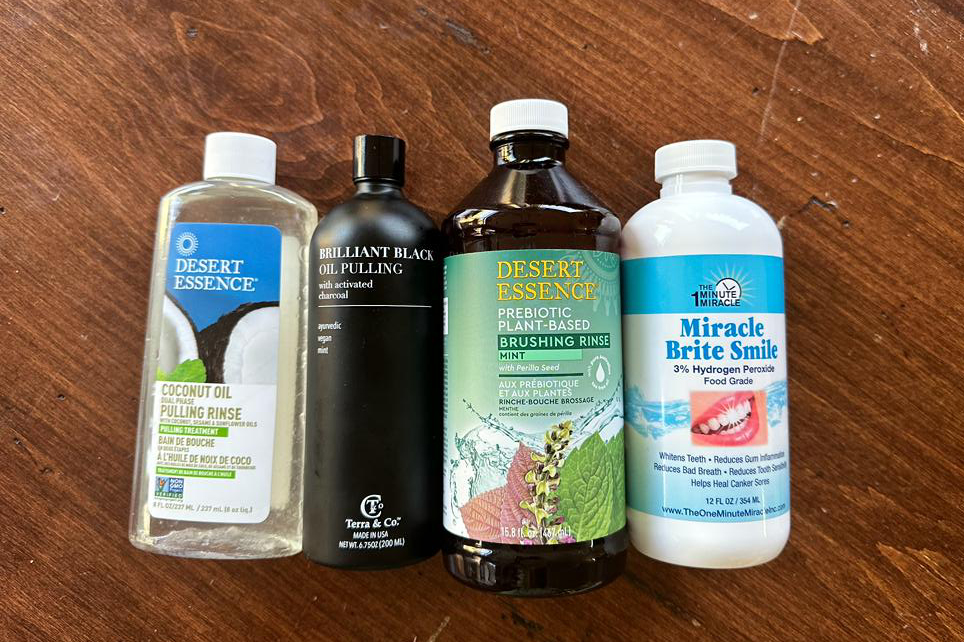
A Personal Journey Towards Natural Dental Care
For years, I relied on over-the-counter fluoride toothpaste from regular pharmacies and supermarket shelves. But over time, I began to question the long-term impacts of fluoride on my oral health. Fluoride, though effective at preventing tooth decay, has been linked to adverse effects on the endocrine system.
Thus, I made a decision to stop using fluoride toothpaste and mouthwashes, which were also drying my teeth.
Instead, I turned to natural alternatives: oxygenated toothpaste, charcoal toothpaste, and even baking soda. I ensure that everything I use is natural and fluoride-free. In the mornings, I skip mouthwash and do a 5-minute coconut oil pulling rinse, a technique that originates from Ayurvedic medicine. The brand I use, Desert Essence, can be bought at Whole Foods or directly from desertessence.com. This simple routine gives my mouth a clean, fresh feeling, often removing the need for morning brushing.
Then, a couple of times a week, I brush with baking soda powder for a sparkling clean finish, followed by using either the oxygenated toothpaste or the charcoal toothpaste. I love rotating these products. Charcoal is a natural teeth whitener, and baking soda helps to neutralize acids and remove plaque. Both can contribute to the natural remineralization process of the teeth.
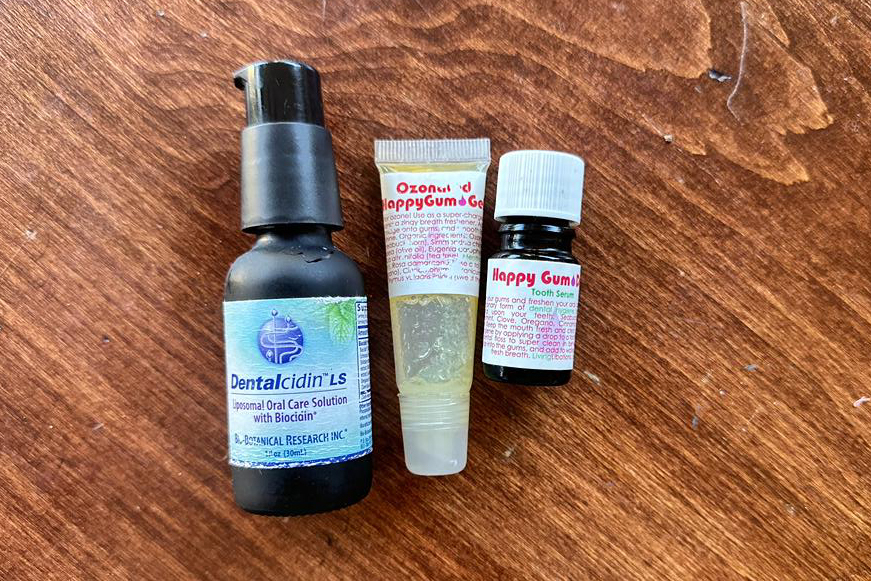
Exploring Advanced Natural Oral Care Products
As my journey towards natural oral care continued, I discovered an excellent company called Terra and Co. They have this incredible Ayurvedic coconut oil with activated charcoal in it for those who want to delve even deeper into natural oral care. I also use a 3% hydrogen peroxide mouthwash three times a week to brighten my teeth.
Another fantastic company for oral care and natural cosmetics is The One Minute Miracle Inc. They have an oxygenated organic rinse mouthwash that does wonders for oral health, promoting a healthy mouth and fresher breath. Not to mention, it helps contribute to the remineralization process of the teeth.
I also love using Happy Gum Drops after brushing my teeth. I put a few drops on my finger and rub them on my gums. It’s like a soothing massage for your gums and a surefire way to promote dental health. If you struggle with canker sores or any oral pain, I’ve found that using these gum drops for a couple of days can completely get rid of them.
Remineralization Program
One of my top recommendations for anyone looking to remineralize teeth naturally is to try a month-long remineralization program from Uncle Harry’s Natural Products. This company has created a well-thought-out, dedicated regimen to target tooth remineralization. Their remineralization liquid for tooth enamel is a remarkable product. It contains a highly concentrated solution of ionic minerals in a base of edible, yet non-GMO, raw white vinegar.

The Importance of Brushing and Cleaning
Proper brushing is a cornerstone of good oral hygiene and is critical in the remineralization process. I keep two toothbrushes in my arsenal – one regular and one electric. At night, I use the electric toothbrush, which is fantastic as it doesn’t have an overly strong vibration that can potentially harm your gums. The gentle yet effective motion feels more like a massage, nurturing rather than assaulting your gums.
I also pay particular attention to my tongue. Our tongues can harbor a lot of oral bacteria, which can lead to bad breath and contribute to dental plaque buildup. I use a copper tongue scraper from Living Libations morning and night to get the gunk out. And of course, flossing is a must in my routine. I floss every night after brushing to remove food particles and plaque that brushing alone might miss.
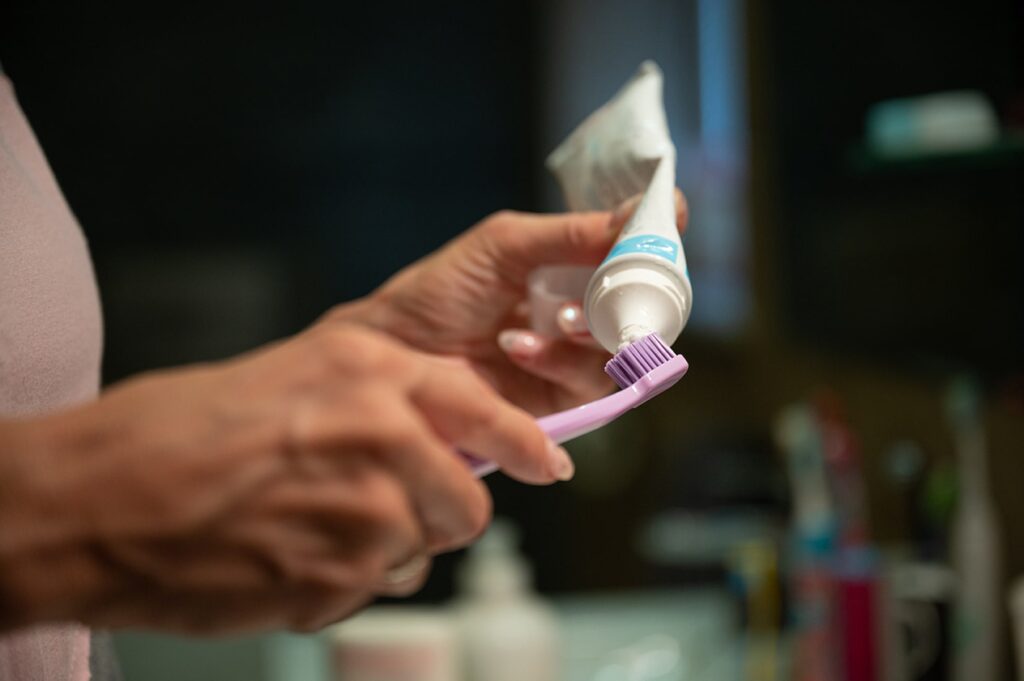
Rinsing and Oil Pulling
Desert Essence also has a wonderful mouthwash that I like to use in the evenings. The mornings, however, are reserved for oil pulling, a practice that I can’t recommend enough. This natural method not only ensures a healthy mouth but also contributes to overall health.
The Magic of Oil Pulling and Its Impact on Oral Health
Oil pulling is an ancient Ayurvedic practice that has seen a resurgence in popularity due to its oral health benefits. This practice involves swishing a tablespoon of oil (usually coconut, sesame, or sunflower) around in your mouth for up to 20 minutes. Doing so helps remove bacteria, promote saliva flow, and support the natural remineralization process.
I perform oil pulling first thing in the morning, and the results have been transformative. My teeth feel cleaner, my gums are healthier, and the overall freshness in my mouth is noticeable.
The practice also aligns with the principles of preventive dentistry, a field dedicated to the prevention of oral diseases rather than simply treating symptoms once they appear. Preventive measures like oil pulling contribute significantly to maintaining a healthy oral environment, crucial for the remineralization process.

Oral Health Check-ups
No natural oral care routine is complete without regular visits to your dentist. It is essential to see a dental professional every six months to a year for preventative dentistry and restorative dentistry, if necessary. Neglecting this can lead to bigger problems down the line, as many health issues start in the mouth. Viome offers a comprehensive test for your teeth and gut bacteria, which I’ve found incredibly useful in maintaining my oral and overall health.
The Power of Ayurveda
In Ayurvedic practice, it is recommended to chew on fennel seeds after meals. Not only does this aid in digestion, but it also helps remineralize your teeth. Fennel seeds contain a good amount of calcium, which contributes to enamel remineralization, and can freshen your breath. It’s an age-old practice in India that many people outside of Ayurvedic medicine are unaware of.

Avoiding Damaging Substances
In my quest to maintain oral health and remineralize teeth, I learned how critical it is to avoid certain substances. Fluoride toothpaste, often promoted as a protector against dental caries, turned out to be potentially harmful. Similarly, typical mouthwashes can dry out your mouth, reducing saliva flow, a crucial component in maintaining a healthy oral environment and facilitating the remineralization process.
A commonly overlooked offender is chewing gum with sugar. Chewing gum can help stimulate saliva production, but when it’s laced with sugar, it contributes to tooth decay. If you must chew gum, opt for sugar-free varieties.

Consuming the Right Foods
Just like your body, your teeth and gums need proper nutrition to stay healthy. Eating a balanced diet is crucial for oral health and helps in the process of tooth remineralization. Certain foods like fermented sugars and grain products can increase the incidence of caries lesions, leading to dental sensitivity and demineralization of tooth structure.
In contrast, consuming foods rich in calcium, phosphate, vitamin D and magnesium can help remineralize teeth. These mineral ions are essential for tooth structure and health, replacing those lost during the demineralization process. Moreover, saliva, the natural mouthwash, contains these ions, which aid in enamel remineralization and protect teeth from acid attack.

The Power of Saliva
Saliva plays a key role in maintaining oral health and remineralizing teeth. It helps cleanse the oral cavity, neutralize stomach acid, and provide minerals necessary for tooth remineralization. By keeping your mouth moist, you ensure an environment conducive to the repair of tooth enamel. This is why hydrating often and ensuring proper saliva flow is critical.
Activated Charcoal: A Natural Teeth Whitener
Activated charcoal is a potent natural teeth whitener that works by binding to plaque and microscopic particles responsible for staining our teeth. Charcoal toothpaste is increasingly being chosen as a natural, chemical-free alternative to traditional whitening methods.
The benefits of activated charcoal extend beyond its whitening properties. It can also help to balance the oral microbiome, reducing the prevalence of caries-causing bacteria and promoting a healthier oral environment. It’s a staple in my oral care routine, and the results speak for themselves.
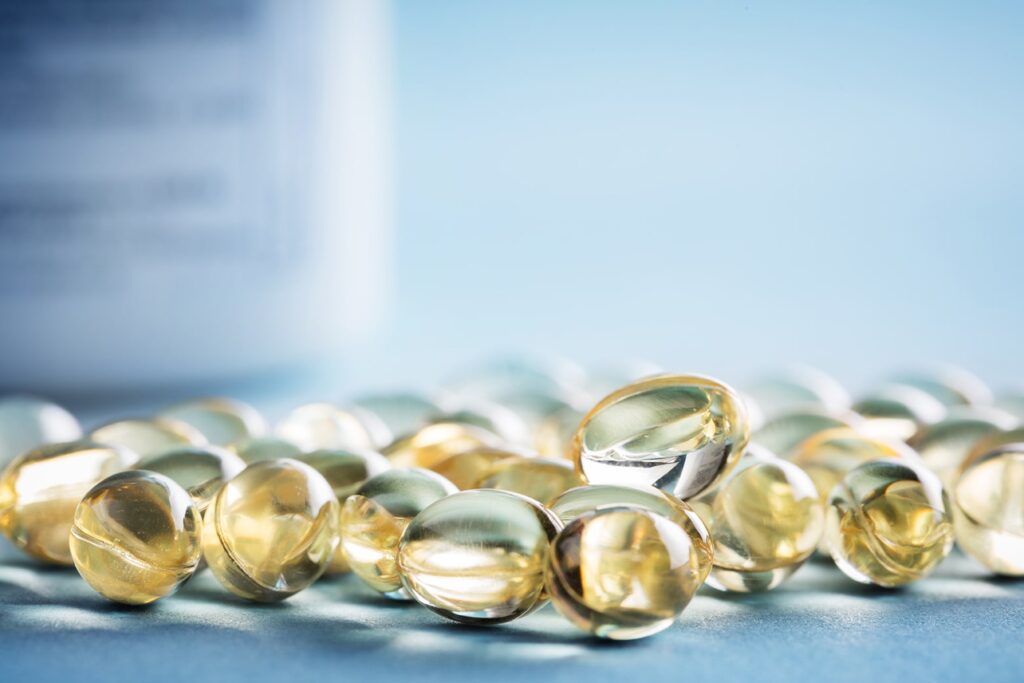
Supplements for Tooth Remineralization
While a balanced diet can provide the necessary nutrients for tooth remineralization, sometimes our diet may fall short. In such cases, supplements can provide the extra boost needed. Supplements rich in calcium, phosphate, vitamin D, and other minerals can help remineralize your teeth.
Like mentioned above, personally, I have found Uncle Harry’s Remineralization Liquid to be quite effective. It’s a natural supplement designed to promote the health and vitality of teeth and gums. Its unique formulation helps restore the calcium and phosphate ions needed for the remineralization process. It’s important to note that supplements should not replace good oral hygiene practices, such as brushing and flossing regularly, and avoiding sugary and acidic foods [6].

The Importance of Regular Dental Check-ups
We often overlook the connection between oral health and general health. However, numerous studies have indicated that poor oral hygiene can lead to serious health conditions. Your oral cavity houses more bacteria than any other part of your body. Poor oral health has been linked to heart disease, diabetes, respiratory diseases, and other health problems.
Despite our best efforts at home, regular visits to the dentist are still crucial for maintaining optimal oral health. Dental professionals can spot early signs of caries lesions, gum disease, and other oral health issues, enabling early intervention and treatment.
Many people delay going to the dentist until they are in oral pain or discomfort. However, preventive check-ups are vital to catch potential issues early on, reducing the need for invasive restorative dentistry procedures later. Regular dental visits, combined with good oral hygiene practices at home, form the cornerstone of a healthy mouth.
In the end, the path to a healthier mouth and the ability to remineralize teeth naturally involves a holistic approach. From the foods we eat to the oral care products we choose, every aspect plays a crucial role. The journey to a healthier mouth is a consistent and conscious effort, but the rewards of a bright, healthy smile make it all worthwhile.

A Holistic Approach to Oral Health
My approach to oral health is grounded in the belief that the body has an innate capacity to heal itself. In our fast-paced, modern world, we often overlook the power of natural remedies and traditional practices. By prioritizing oral health, choosing natural products, and adopting habits such as oil pulling and tongue scraping, we can help our bodies function at their best.
I have realized that caring for your mouth means more than just preventing cavities and tooth decay. It’s about enhancing overall health, feeling good, and having confidence in your smile. It’s about choosing products and practices that promote not just oral health, but overall well-being.

Coaching Sessions
I am currently offering one-on-one coaching sessions to help individuals who may be facing challenges in achieving their goals independently. My goal as a coach is to guide and support you in every step of your journey, while also holding you accountable for the actions you take towards achieving your desired outcomes.
Whether you want to improve your health and wellness, establish better habits, or achieve personal and professional growth, I can provide you with personalized attention, a customized approach that suits your unique needs, and the necessary tools and motivation to help you reach your full potential and transform your life.
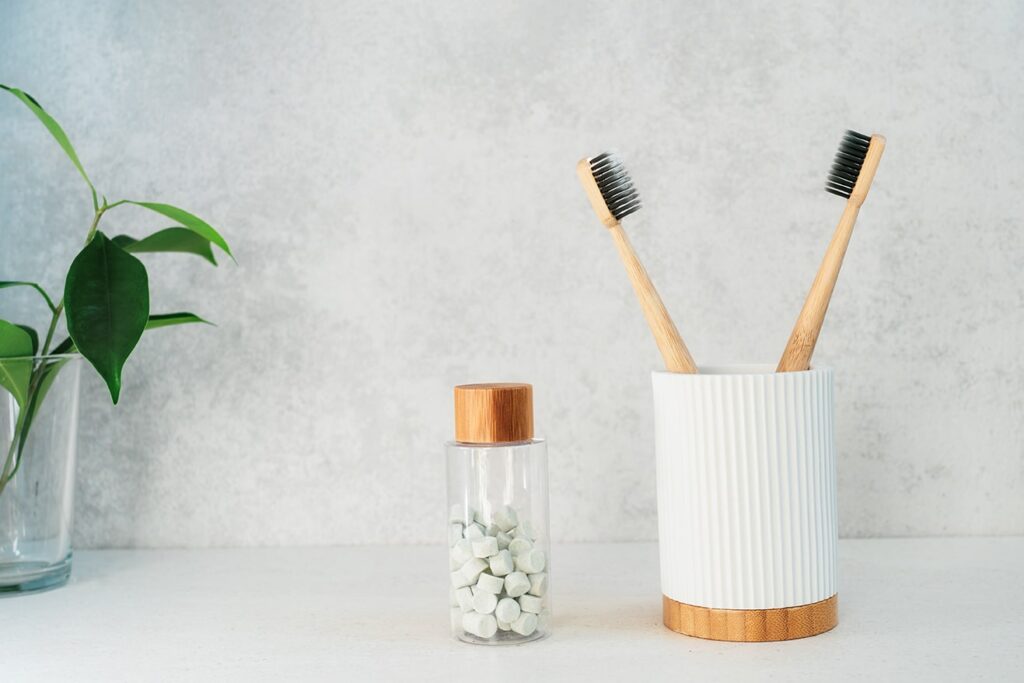
Conclusion
Achieving optimal oral health is more than just keeping cavities at bay. It involves a multi-faceted, natural approach that respects and harnesses our body’s innate ability to repair and maintain our teeth. Remineralization, a fundamental process in maintaining the integrity of our tooth enamel, is significantly influenced by the choices we make, from the type of toothpaste we use to the foods we consume.
Transitioning to natural toothpaste options, such as those oxygenated or enriched with charcoal, helps eliminate the potential negative impacts of fluoride on our health while still providing a clean and fresh feel for our mouths. Utilizing natural aids like baking soda and coconut oil pulling can further enhance our oral hygiene routines, as they offer benefits ranging from teeth whitening to bacterial elimination.
Emphasizing products that actively support the remineralization process, such as remineralizing toothpastes and supplements, is another critical step in maintaining and improving oral health. Incorporating certain foods into our diet, like fennel seeds after meals, can assist in this process, too.
Professional dental care plays an equally vital role. Regular check-ups with a trusted dentist can detect any emerging issues, ensuring that any onset of tooth decay or demineralization can be promptly addressed. Plus, understanding the potential benefits of treatments, like fluoride treatment, can help us make informed decisions about our dental health.
FAQ
Tooth remineralization is a natural process where minerals are deposited back onto the tooth enamel after being removed by acids produced by bacteria and sugars in the mouth.
You can naturally remineralize your teeth by maintaining good oral hygiene, using fluoride-free natural toothpastes, consuming a diet rich in vitamins and minerals, and avoiding acidic and sugary foods. Coconut oil pulling and using remineralizing toothpastes or supplements can also enhance this process.
Fluoride toothpaste is commonly used and recommended by dentists to prevent tooth decay. However, some research suggests excessive fluoride exposure might have potential side effects on the endocrine system. As a result, some people opt for fluoride-free alternatives.
Saliva production can be promoted by staying hydrated, chewing on sugar-free gums, and maintaining a healthy diet. Saliva helps neutralize acids and aids in the remineralization process of teeth.
It's recommended to visit your dentist for a check-up every six months to a year, although this can depend on your individual dental health.
Oil pulling, especially with coconut oil, helps to clean and detoxify the mouth. It can reduce harmful bacteria, fight bad breath, and whiten teeth, contributing to overall oral health.
Acidic foods can erode tooth enamel over time, leading to tooth demineralization, sensitivity, and decay. Consuming such foods in moderation and maintaining good oral hygiene can help mitigate these effects.
Remineralizing toothpastes contain minerals like calcium and phosphate, which can be deposited onto the tooth surface to strengthen weakened enamel and promote remineralization.
Consuming large amounts of sugar can lead to tooth decay. Sugar provides food for harmful bacteria in the mouth, and these bacteria produce acids that erode tooth enamel, leading to cavities.
Chewing sugar-free gums can stimulate saliva flow, which helps neutralize harmful acids, wash away food particles, and remineralize teeth.
Regular dental check-ups allow early detection and treatment of dental issues. They also provide an opportunity for professional cleaning, which can remove plaque and tartar build-up that regular brushing and flossing may miss.

Resources
1. What Is Remineralization? How to Remineralize Your Teeth
2. Tooth Remineralization: How to Strengthen Your Teeth
3. Can You Remineralize Teeth?
4. Remineralizing Teeth: 10 Effective Home Remedies to Try
5. How to Remineralize Teeth: Strengthen Enamel and Stop …
6. Recent Advances in Dental Hard Tissue Remineralization
7. Dental Remineralization through Supplements

With a positive approach and a motivation mindset, you will reach your health goals, no matter how hard they may seem at first. Learn more about my one-on-one coaching program here.







